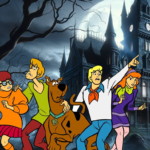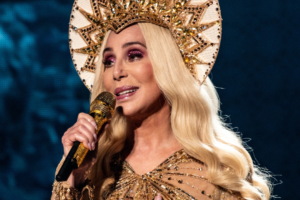The minivan rattled down the highway, my pre-teen daughter Emma belting out “Sparks Fly” at the top of her lungs. Her hair, still damp from the pool, whipped around her face like a golden halo. In the rearview mirror, I caught the sight of her younger brother, Ethan, tapping his drumsticks on his knees, a goofy grin plastered across his face.
It was a scene etched in the tapestry of my parenthood – one from a few years ago when Emma, clutching a pink feather boa, declared Taylor Swift her eternal idol. Back then, it was all sparkly dresses, hair ribbons, and endless lip-syncing to “Love Story.” Now, their love for Taylor had matured, evolving into a deep appreciation for her songwriting, her advocacy, and her sheer unapologetic embrace of herself.
But lately, a question had been nagging at me, one I couldn’t quite voice. Is Taylor Swift a good role model for my kids?
The media paints a sometimes contradictory picture. Some hailed her as a feminist icon, a businesswoman extraordinaire, a champion of the underdog. Others criticized her “overly dramatic” lyrics, her squad of famous friends, her supposed obsession with past relationships.
As a parent, I navigated this minefield cautiously. I loved Taylor’s message of female empowerment, her vulnerability, her unwavering belief in the power of storytelling. But I also worried about the idealized image of romance she sometimes portrayed, the potential for comparing oneself to the carefully curated persona on social media.
One summer night, as fireflies winked in the backyard and Taylor’s melancholic “The Archer” drifted from the speakers, I decided to face this question head-on. I sat down with Emma and Ethan, the glow of the fire dancing in their eyes.
“Do you guys think Taylor Swift is a good role model?” I asked gently.
Emma, ever the pragmatist, looked at me, her brow furrowed. “She’s not perfect,” she admitted. “She makes mistakes, she writes songs about heartache, she sometimes gets mad just like everyone else.”
Ethan, always the optimist, chimed in, “But she picks herself up. She learns from her mistakes. She uses her voice to speak up for what she believes in, even when it’s hard.”
Their words hung in the air, a testament to the way they had internalized Taylor’s lessons. It wasn’t about blind hero worship, but about recognizing the human being behind the glitter and glamour.
Over the next few weeks, we embarked on a Taylor Swift odyssey. We revisited her early country hits, analyzing the relatable stories of teenage angst and small-town dreams. We dissected the layered narratives of her pop masterpieces, marveling at her use of metaphors and wordplay. We danced around the living room to the pulsating beats of her latest album, celebrating her evolution as an artist.
Through this journey, I saw how Taylor had become a mirror for my children. They saw in her their own struggles with friendships, their anxieties about growing up, their budding ambitions. They saw her embrace her quirkiness, her love for storytelling, her fierce loyalty to her loved ones – qualities they aspired to cultivate in themselves.
Of course, there were moments when I cringed at the lyrics, moments when I wished she’d chosen a different path. But then I’d remember a different song, a different message, a different act of courage that had touched my own life.
Remember when she spoke out against sexual assault, paving the way for countless victims to find their voices? Or when she re-recorded her masters, setting a precedent for artist ownership in the music industry? Or when she used her platform to encourage voter registration?
Like the world Taylor sings about, there is good and there is bad in all of us. Here’s my breakdown of some of the Taylor positives and not so positives.
Positive Influences:
- Empowerment and Resilience: Taylor’s journey from country sweetheart to pop powerhouse showcases female agency and overcoming challenges. Her songs like “Shake It Off” and “The Man” advocate for resilience against negativity and societal pressures, inspiring young women to embrace their individuality and navigate life’s hurdles.
- Philanthropy and Advocacy: Taylor’s generous spirit shines through her support for various causes. She has donated millions to education, disaster relief, and other charities, demonstrating compassion and using her platform for positive change.
- Strong Work Ethic and Artistic Integrity: Taylor’s dedication to her craft is undeniable. She writes and co-writes most of her music, showcasing creative control and artistic vision. This work ethic and commitment to quality inspire aspiring artists to pursue their passions with dedication.
- Promoting Kindness and Empathy: Though her music often delves into personal experiences, Taylor also explores themes of love, friendship, and empathy. Songs like “Teardrops on My Guitar” and “You Belong With Me” resonate with themes of understanding and compassion, encouraging fans to connect with others on an emotional level.
Not so positive:
- Focus on Romantic Relationships: A significant portion of Taylor’s music centers around romantic relationships, sometimes portraying heartbreak and idealized scenarios. Her personal history of relationships often does not align with our perspective on love and commitment to a deeper connection and spiritual considerations, which are the foundation for a successful relationship.
- Materialistic Lifestyle Portrayals: Some of Taylor’s music videos and lyrics depict a glamorous lifestyle with expensive possessions and fashion. While aspirational, this focus on material wealth can encourage her fans to get caught up in an unhealthy “Instagram-worthy” life instead of prioritizing pursuit of a truly fulfilling lifestyle.
- Past Controversies: Like any public figure, Taylor has faced controversies, some related to her personal life and others concerning public feuds. While she has apologized for some past actions, these incidents might raise concerns for those seeking morally upright role models.
Ultimately, role models are multifaceted individuals, and it’s up to each person to decide who they admire and why. It’s also important to remember that no one person can be a perfect role model, and it’s healthy to look for inspiration from various sources. And to be honest, you could do far worse. Many of the music options your children could be listening to have themes and lyrics that are very dark and unhealthy.
For our family, Taylor Swift is a good role model. Not because she’s infallible, but because she shows us that even the most celebrated stars are human, that they stumble, they learn, they grow.
Taylor taught my children the power of vulnerability, the importance of self-respect, the courage to speak up for what you believe in. She taught them that it’s okay to dance in the rain, to wear your heart on your sleeve, to write your own narrative.
And isn’t that what we ultimately want for our children? To embrace their individuality, to use their voices, to chase their dreams with unwavering determination? So yes, you can consider me a Swiftie!
























